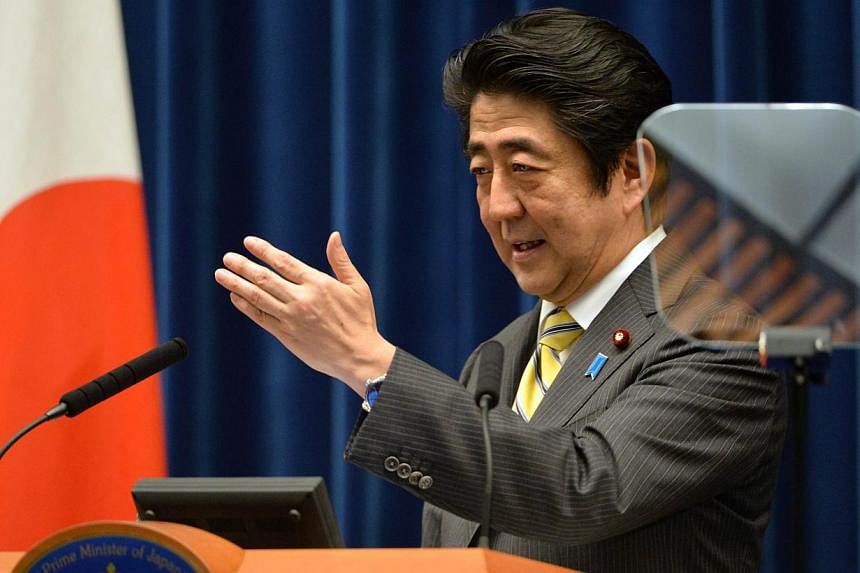TOKYO (AFP) - Philippine President Benigno Aquino, whose country was brutally invaded by Japan in World War II, said on Tuesday he supports Shinzo Abe's plan to expand the scope of his country's armed forces.
The comments, during a one-day trip to Tokyo, highlight the huge shifts in attitude in the region and show how alliances are being forged as Asia adjusts to an increasingly muscular Beijing pressing territorial claims in nearby waters.
Aquino praised the path Japan had taken in the decades since its troops invaded the Philippines.
"Very few would question the devastation that my country suffered during the Second World War. However, since the middle of the 20th century, my country's relationship with Japan has been characterised by trust and unfailing support," he said.
"Japan has acted with compassion and in accordance with international law, and has more actively and more positively engaged the region and the world." And Aquino gave his public backing for Abe's push to reinterpret the current Japanese constitutional ban on so-called "collective self-defence" - coming to the aid of an ally under attack.
"We... do not view with alarm any proposal to revisit the Japanese constitution, if the Japanese people so desire, especially if this enhances Japan's ability to address its international obligations, and brings us closer to the attainment of our shared goals of peace, stability, and mutual prosperity," he said.
Abe's push to increase his country's military options to allow its well-equipped armed forces to play a more active global role is controversial at home, where many are deeply wedded to the idea of pacifism.
Beijing also regularly cautions against what it says is Abe's attempt to reawaken militarism.
Both leaders stressed the need to use "the rule of law" to solve regional disputes, at a time when their countries are embroiled in separate rows with China.
"In the face of the regional situation becoming severe, both nations are closely coordinRating," Abe told reporters in a joint news conference after the summit with Aquino.
"I reaffirmed with President Aquino today the significance of... the rule of law," Japan's conservative premier added.
Aquino said his visit to Japan was focusing on "the challenge of safeguarding our regional security by advancing the rule of law to protect our global and regional common interest".
The phrase is something of a mantra for Abe as he tries to press Beijing into backing off from Tokyo-administered islands that it claims as its own.
It has also become a refrain among other countries in the region who are feeling the heat from China's more aggressive assertions of ownership of nearly all of the South China Sea.
When Abe visited Manila in July last year, he pledged Japan's help in strengthening the Philippines' maritime defence capabilities.
Part of that was a promise of 10 patrol boats for the Philippines' poorly-equipped coast guard, which is on the front line of Manila's dispute with China.
The Philippines has lodged repeated protests at China's growing military and civilian presence on islands and in waters within what it considers its exclusive economic zone.

